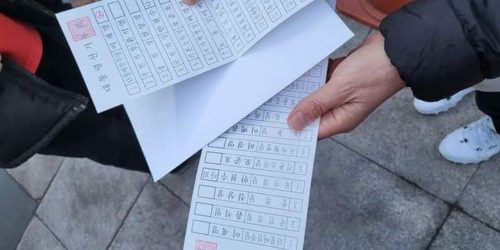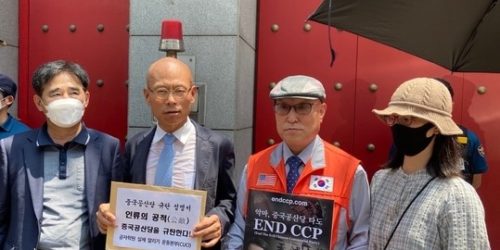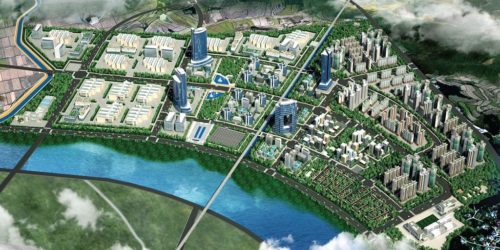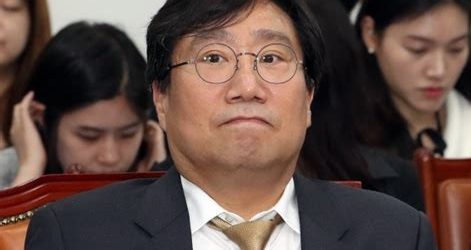South Korean Politics at a Crossroads—Again
2024-12-28, John Cha
The South Korean parliament managed to impeach South Korean President Yoon Suk-yeol on a second try on December 14, 2024, following Yoon’s declaration of “martial law” on December 3. Accordingly, Mr. Yoon will now face a trial in the Constitutional Court, which will either accept the parliament’s impeachment recommendation or reject it. If the Constitutional Court affirms the impeachment, Mr. Yoon will lose his presidency.
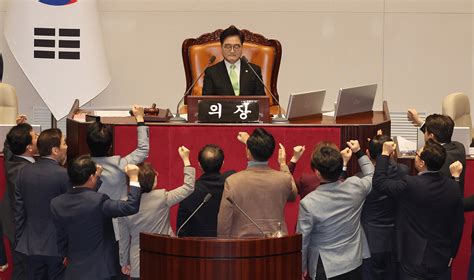
National Assembly Speaker Woo won-shik surrounded by those protesting after impeaching Acting President Han Duck-soo, 2024-12-27
What is amazing, the parliament has proceeded with two impeachment votes over one week without holding any open debate regarding such an important issue. The opposition Democratic Party of Korea (DPK) (aka Minju party), armed with its super-majority status, has dominated the vote to impeach Mr. Yoon—in a hurry. Why were they in such a hurry? The DPK is led by Mr. Lee Jae-myung, who lost his presidential bid to Mr. Yoon in 2022. Mr. Lee was recently convicted for violating election laws. Also, he is on trial or under investigation for cases involving real estate corruption, bribery of a Supreme Court justice, and sending money to North Korea. Despite these pending cases, Mr. Lee is a shoo-in for the snap election should the Constitution Court affirm Yoon’s impeachment, seeing as he was a close second to Mr. Yoon in the last election. The snap election needs to happen in a hurry before Mr. Lee is convicted of his crimes and disqualified as a presidential candidate.
Meanwhile, President Yoon intends to make his case in the Constitution Court. A lifetime prosecutor and former solicitor general, he will make his case as to why he was compelled to declare the ersatz martial law that lasted six hours before he took it down. He intends to argue that he couldn’t sit idly by all the shenanigans Mr. Lee and the DPK were pulling—such as impeaching prosecutors who had been investigating Mr. Lee and even the auditor general, 22 times altogether prior to martial law. The DPK also slashed the 2025 budget to the tune of $2.8 billion in an autocratic manner without consulting the People Power Party (PPP), including funding for intelligence. Korea’s National Intelligence Service (NIS) has been investigating hacking by North Korea and possibly by Chinese Communist Party (CCP) against National Election Commission (NEC) servers and computers, and it discovered serious weaknesses in the system. Out of seven attempts to infiltrate the NEC computers, intelligence agents were able to hack the system on six occasions and manipulate the election results at will. Meanwhile, the NEC officials have claimed that their system was sound and safe.
President Yoon was compelled to issue martial law, and he intends to defend his decision to dispatch computer experts to examine the NEC system during the six hours, because he deemed NEC’s susceptibility to outside hacking an emergency situation. North Korea’s hacking ability has been well-documented, including the DOJ’s latest indictments of fourteen North Korean hackers responsible for theft over the Internet. Mr. Yoon will need to explain his decision and circumstances in such a way that the Korean public can understand.
Huge crowds have gathered at the parliament building in Yoido, calling for Mr. Yoon’s impeachment. What is interesting is that many Chinese nationals were present. According to cab drivers, a huge number of their customers at the Parliament building were Chinese. Some observers claim that one-third of the crowd in the area were Chinese. Why were the Chinese people out there in the first place? Another interesting question is—who is paying for the thousands of display signs calling for Yoon’s impeachment? Who is paying for the crowd’s free coffee and food? These are some of the questions I have as I watch the Korean media cover the dramatic event taking place.
Meanwhile, huge crowds of Yoon’s supporters are demonstrating in the heart of Seoul at Gwanghwamun, which has mostly been ignored by the media. I hope the media gives the Gwanghwamun crowd equal time, so that the international community finally gets a balanced view of how Korean people feel about the situation, notwithstanding the low poll numbers Mr. Yoon is showing, which has actually increased since martial law. At the heart of the situation is the race of time between Mr. Yoon and Mr. Lee. What will the Constitutional Court do—overturn the DPK’s impeachment recommendation and keep President Yoon in office, or go along with the autocratic DPK and allow for a snap election?
The trouble for DPK is that the Constitutional Court has only six sitting justices at present instead of the usual nine members. Korean constitution requires that six justices must agree to impeach the president. In other words, if one of the six justices votes no to the impeachment, President Yoon retains his job.
So, DPK is pushing hard to fill the vacant seats with justices they like. DPK has been dragging its feet for the past two years about filling the vacant seats. But they want to fill the seats now, so the court can impeach President Yoon. Prime Minister Han Duck-soo, who is filling in for President Yoon while the impeachment trial takes place, said he would appoint justices recommended by the Parliament as long as both parties agree on the candidates as has been in the past. DPK didn’t like that, since they wanted Han Duck-soo to go along with their choices, never mind discussing the candidates with PPP (People Power Party). So, what does DPK do? They impeached Prime Minister Han Duck-soo on December 27. That was the 29th time that the DPK introduced a motion to impeach a government official. Parliamentary power the DPK wields emboldened them to no end. There is a new sheriff in town, so to speak, and they can impeach anybody. And they will do so until no one is left to challenge them. The question is—who will DPK impeach next?

